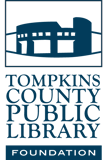I was first taken to Disneyland, in Anaheim, California in 1962 when I was 2 ½ years old, one of many trips with my family to the Magic Kingdom during my girlhood in Southern California. These visits marked birthdays and other life celebrations and are the reason I came to associate Disney with happy events in my young life.
I usually plan my annual READATHON selection around an anniversary – for example, I read from The Elements of Style in 2018, the centennial of when Cornell English Prof. William Strunk Jr. privately published his “little book”. As it happens, 2023 marks the centennial of the founding of the Walt Disney Company, initially called the Disney Brothers Cartoon Studio, in Los Angeles.
2023 is also the centennial of the original German publication of Felix Salten’s novel, Bambi, a Life in the Woods. I’ve selected Bambi to read because of the confluence of these two events and to honor the READATHON’s theme of reading banned and challenged books.

“Bambi”, the animated movie brought to the screen by Walt Disney Productions in 1942, is a lighter, sometimes comedic, and child-friendly version of the book. Although it’s still scary; Stephen King called it the first horror film he ever saw. Salten, an Austrian Jew, wrote Bambi for an adult audience and it was hugely popular in its day, especially after the English-language edition was released in 1928. It earned rave reviews, an introduction by John Galsworthy, and sold 650,000 copies before the movie was released. Bambi, the film, effectively eclipsed Bambi, the novel, and its author, who died in 1945.
Called “charming”, “tender”, it “aptly captured the feel of forest life” and gave animals human emotions “while not violating their essential natures”, many early reviewers missed the depiction of the forest as not just a place where hunters preyed upon the animals – as everyone knows who’s seen the film – but where animals preyed upon each other. Salten, an avid hunter, said he wrote Bambi to educate naïve readers about nature, where starvation, competition, and predation are the norm.
This is what the Nazis saw in his book, that it wasn’t about animals at all, but a commentary on rising anti-Semitism, depicting betrayal and subjugation and hinting at authoritarianism. In the book, a young male deer, Gobo, was nursed back to health by a kind hunter after being shot. He defends humans after his triumphant return to the forest, saying You all think He’s wicked, but He isn’t wicked. If He loves anybody, or if anybody serves Him, He’s good to him. Wonderfully good!
Many of the other deer, including Bambi, despise Gobo because he’s tamed and dangerously naïve. Gobo is confident humans won’t harm him and, ignoring the advice of other animals, strolls through a meadow despite the nearby scent of humans, where he’s shot by a hunter and dies horribly. These passages, and other of his works, are the reason why Nazis banned and burned Salten’s books, along with those by countless other Jewish authors.
It's hard to reconcile the movie characters of Thumper the rabbit and Flower the skunk with this grim, even bleak portrait of forest animals, filled with suffering and cruelty that feels very human. Of course, Walt Disney wanted to appeal to children and their parents, so it’s easy to see why he took only a broad outline from the novel. The details are scary even for adults.


